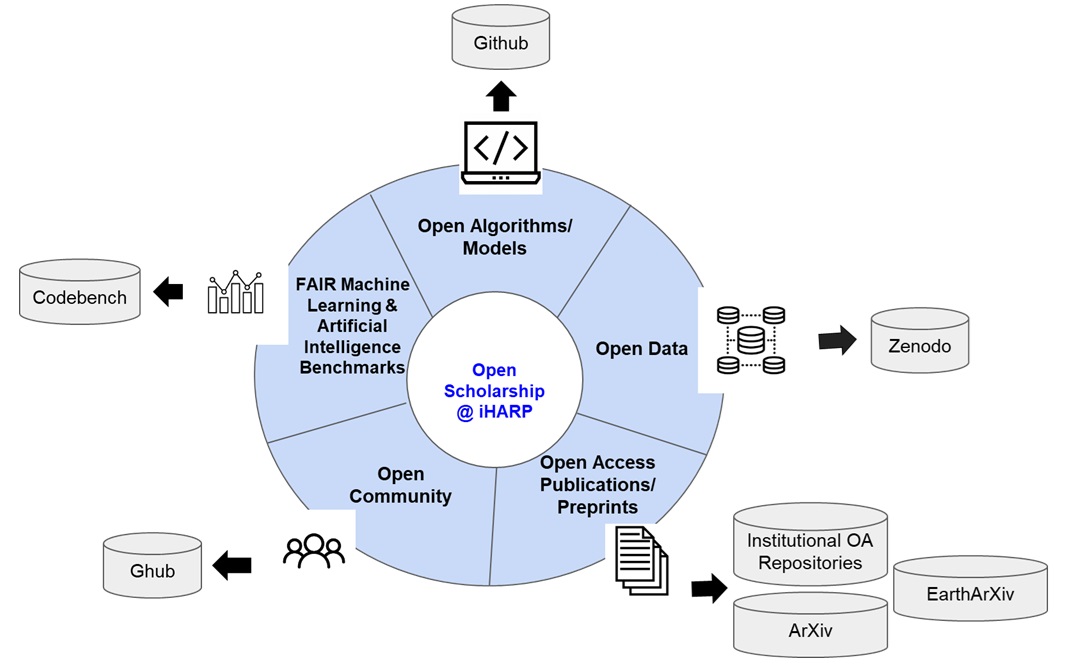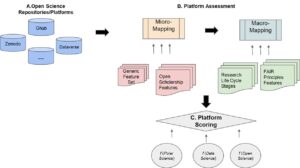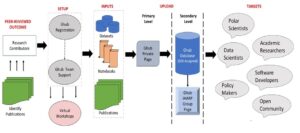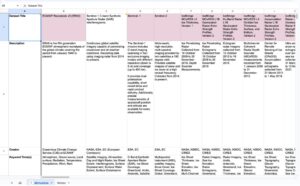At iHARP, we leverage open science practices to engage the broader scientific community in a scholarly journey to navigate multiple research artifacts (including models/algorithms, datasets, publications, presentations, and AI/ML benchmarks). By adhering to Findable, Accessible, Interoperable, Reusable (FAIR) principles, we envision furthering purposeful collaboration (thereby aligning with the HDR initiative of convergence) and reproducibility (to enhance outcomes), all geared towards increased scientific breakthroughs and discoveries.
Explore iHARP’s Repositories

Open Models Repository
Try out our accessible notebooks and algorithms on Github
Open Data Repository
Learn about our data sources and data preprocessing strategies on Zenodo
Open Polar Science Community
Learn about our network of polar science contributors on Ghub
Open Access
(Published Articles, Proceedings, Posters, Presentations)
Scholarworks@UMBC offers a starting point for accessing iHARP’s scholarly research publications. This is complementary to other partner institutions.
Preprints
Share your feedback to help us characterize the impact of our work at
ArXiv and EarthArXiv.
Open Science Spotlights
An open science guidance for iHARP is available here.




